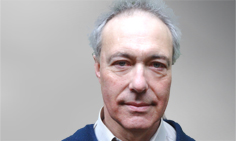THE practice of pharmaceutical companies paying physicians to deliver information about their products was questioned in a recent article published in Open Medicine.
Apparently, this occurs commonly in the US, where it often involves a contractual agreement by the doctors to adhere to company materials. The authors argue that this “speakers’ bureau” system is really a drug promotion scheme in disguise that undermines the independence of the medical profession and contributes to expensive and irrational prescribing, and they call for it to be prohibited by law.
Although there are no data about the existence of a similar system in Australia it is clear that at least informal arrangements exist whereby practitioners — often senior and respected figures in their professions — develop close, mutually beneficial relationships with industry, whose interests they represent in interactions with other doctors, scientific meetings, clinical discussions and other settings.
As in the US, such relationships have raised concerns about blurring the line between commercial and professional interests and obligations.
In their roles as health professionals, doctors are obliged first of all to serve the interests of their patients. As representatives of industry they serve commercial interests. The two sets of interests might not be the same and can lead to different outcomes for patient care.
There is also the perception that some doctors might be subject to influences of a commercial nature that could well undermine the trust that the public places in the medical profession.
This is not to say that individual practitioners cannot enter into commercial relationships: indeed, many are legitimately employed directly by industry.
However, if they do so they need to distinguish carefully — both to themselves and in the ways in which they present themselves publicly — between the different roles they are occupying, and to avoid using their professional status as the basis for authority in the commercial domain.
Sometimes this is easier said than done — for example, where a physician genuinely believes in the efficacy of the product he or she is promoting — but in these cases the safest and most appropriate course of action is to declare openly the nature of any interests that might, consciously or unconsciously, affect attitudes or decisions.
A particularly important setting in which these issues arise is that of education, including continuing professional development programs. Here, the dangers associated with commercial influence are even greater because of their potential to affect a great many decisions in the future.
For this reason, current guidelines often recommend that commercial involvement in educational activities be avoided altogether. This even includes “untied” or “unconditional” grants, because of the perception that any relationship establishes reciprocal expectations and can thereby undermine the independence of physicians.
The question of mandatory regulation raises additional questions. It is widely argued that self-regulation is ineffective in controlling doctors’ behaviour and that there is simply no alternative to enforceable codes of conduct.
Against this is the view that if a decision is compulsory it loses its ethical content, precisely because it is of the nature of ethics that decisions involve uncoerced reflection and dialogue.
Mandatory control of behaviour inevitably leads to a loss of ethical capacity, which ultimately will produce more harm than good. Accordingly, many leading codes of ethics emphasise the importance of their voluntary nature, along with rigorous argument and reliable evidence.
Physicians should not use their professional status to promote commercial interests; they should not give up their right to choose what they say; and educational activities should be fully independent of industry support or influence.
By distinguishing carefully between commercial and professional interests, doctors can help to protect their patients and to preserve public trust.
Professor Paul Komesaroff is from the Faculty of Medicine, Monash University and is director of the Monash Centre for Ethics in Medicine and Society.

 more_vert
more_vert